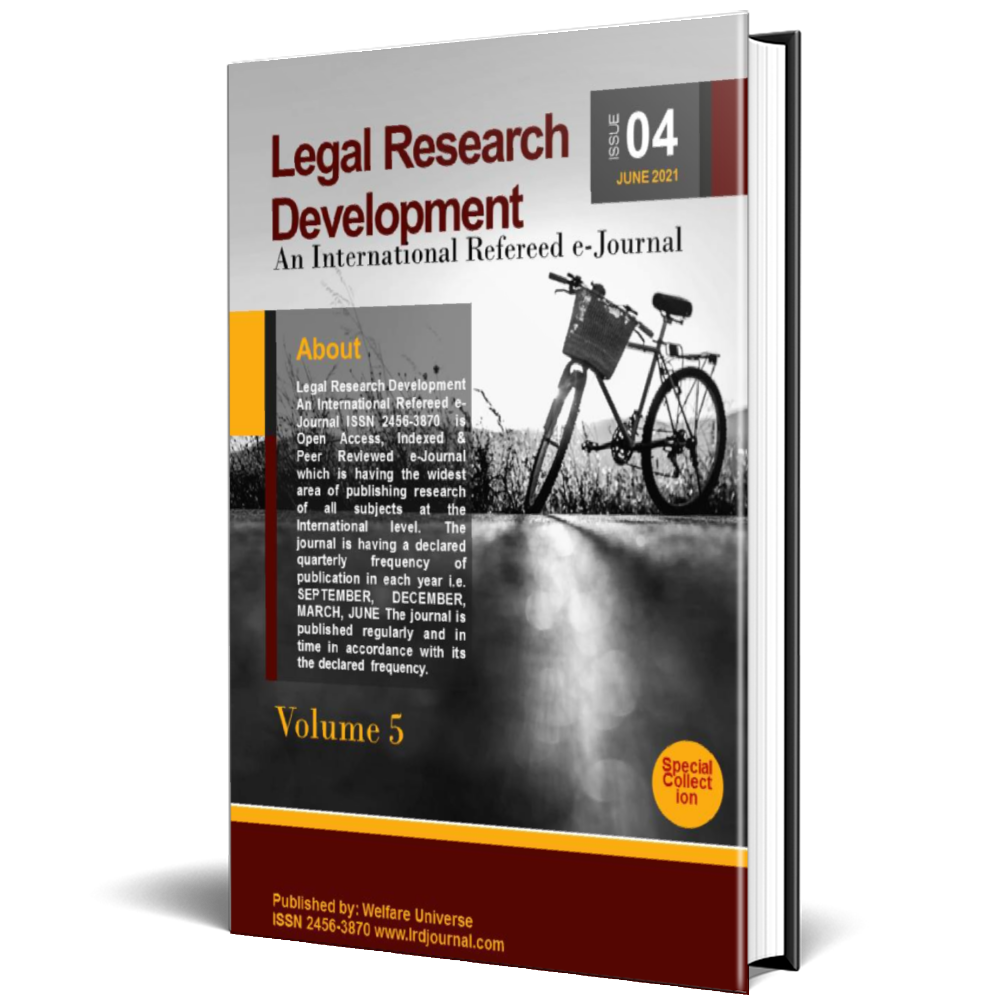Integrating Empirical and Doctrinal Research: A Comparative Analysis of Their Contributions to Legal Scholarship
DOI:
https://doi.org/10.53724/lrd/v9n2.2Keywords:
Empirical Research, Doctrinal Research, Legal Scholarship, Legal Theory, Legal Practice, Normative Analysis, Data-driven Methodologies, Legal Reform, Integration of Research Approaches, Law in PracticeAbstract
This paper examines the integration of empirical and doctrinal research methodologies in legal scholarship, providing a comparative analysis of their respective contributions. Doctrinal research, traditionally focused on analyzing legal texts, principles, and case law, serves as the foundation for understanding the normative aspects of law, offering theoretical frameworks and legal interpretations. In contrast, empirical research, rooted in data-driven methodologies, evaluates the practical application of law, exploring how legal rules and systems function in real-world settings. While each approach offers unique insights, their integration can bridge the gap between legal theory and practice, fostering a more comprehensive understanding of the law’s impact and effectiveness. This paper explores the strengths and limitations of both approaches, identifies the challenges and opportunities of combining them, and demonstrates how their convergence can enhance the relevance and depth of legal scholarship. By combining normative analysis with empirical evidence, the integrated approach holds significant potential for legal reform, policy development, and the improvement of justice systems.
References
S. P. Sathe, Judicial Activism in India, 2nd ed. (New Delhi: Oxford University Press, 2002).
M.P. Jain, Constitutional Law of India (New Delhi: Wadhwa & Company, 2014).
Mark Tushnet, The New Constitutional Order (Princeton: Princeton University Press, 2008).
P.N. Bhagwati, Judicial Review of Legislation in India (Ph.D. thesis, University of Delhi, 1971).
Ran Hirschl, "Comparative Constitutionalism: A Theoretical Framework," Harvard International Law Journal 46 (2005): 5-30.
Rosalind Dixon, "Constitutional Interpretation," Yale Law Journal 120, no. 6 (2011): 1043-1072.
K.K. Aziz, The Indian Penal Code (New Delhi: Oxford University Press, 2006).
Kesavananda Bharati v. State of Kerala, AIR 1973 SC 1461.
Maneka Gandhi v. Union of India, (1978) 1 SCC 248
J.K.S. Udey, Principles of Jurisprudence (New Delhi: Eastern Book Company, 2011).
Law Commission of India, 254th Report on Reform of Family Law (New Delhi: Government of India, 2015).
Richard Posner, "Law and Economics: The Case of Property Rights," Journal of Legal Studies 12 (1983): 143-157.
Sheela Barse v. Union of India (1986 AIR 1773),
Vellore Citizens’ Welfare Forum v. Union of India (AIR 1996 SC 2715),
Sexual Harassment of Women at Workplace (Prevention, Prohibition, and Redressal) Act, 2013
Bandhua Mukti Morcha v. Union of India (AIR 1984 SC 802),
Sheela Barse v. State of Maharashtra (AIR 1983 SC 378).
Vellore Citizens’ Welfare Forum v. Union of India (AIR 1996 SC 2715)
Hussainara Khatoon v. Home Secretary, State of Bihar (AIR 1979 SC 1369).
M.C. Mehta v. Union of India (AIR 1987 SC 965
Satbir Singh v. State of Haryana (2021 SCC OnLine SC 404).
Downloads
Published
How to Cite
Issue
Section
License
Copyright (c) 2024 Legal Research Development

This work is licensed under a Creative Commons Attribution-NonCommercial 4.0 International License.










